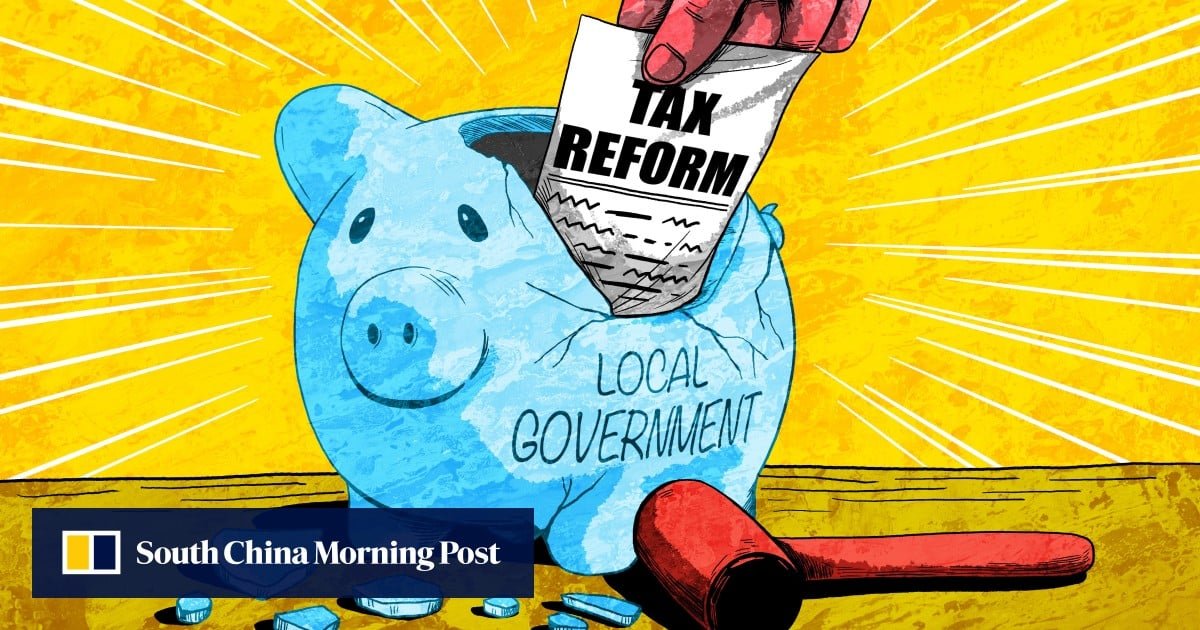Why China’s property crisis is putting tax overhaul on new 5-year plan agenda
As China drafts its 15th five-year plan – the next entry in a line of expansive blueprints that have set the tone for the country’s development over more than seven decades – we examine how these documents inform and reflect high-level policy priorities, and what to expect in the coming iteration, such as how it…
As China drafts its 15th five-year plan – the next entry in a line of expansive blueprints that have set the tone for the country’s development over more than seven decades – we examine how these documents inform and reflect high-level policy priorities, and what to expect in the coming iteration, such as how it could help alleviate local-level financial woes.
In late March, an announcement by the central Hubei province sent a shiver down the spines of wealthy individuals across China: a local resident had been forced to pay 1.41 million yuan (US$200,000) in back taxes and late fees on undeclared overseas income.
Within days, three other local tax departments had announced similar cases of individuals being hit with huge tax bills on their foreign earnings, with some of the payments reaching as high as 1.26 million yuan.
The moves were part of a wider clampdown by Chinese authorities: although the country has long required individuals to pay tax on their overseas income, enforcement was, until recently, often lax and discretionary.







